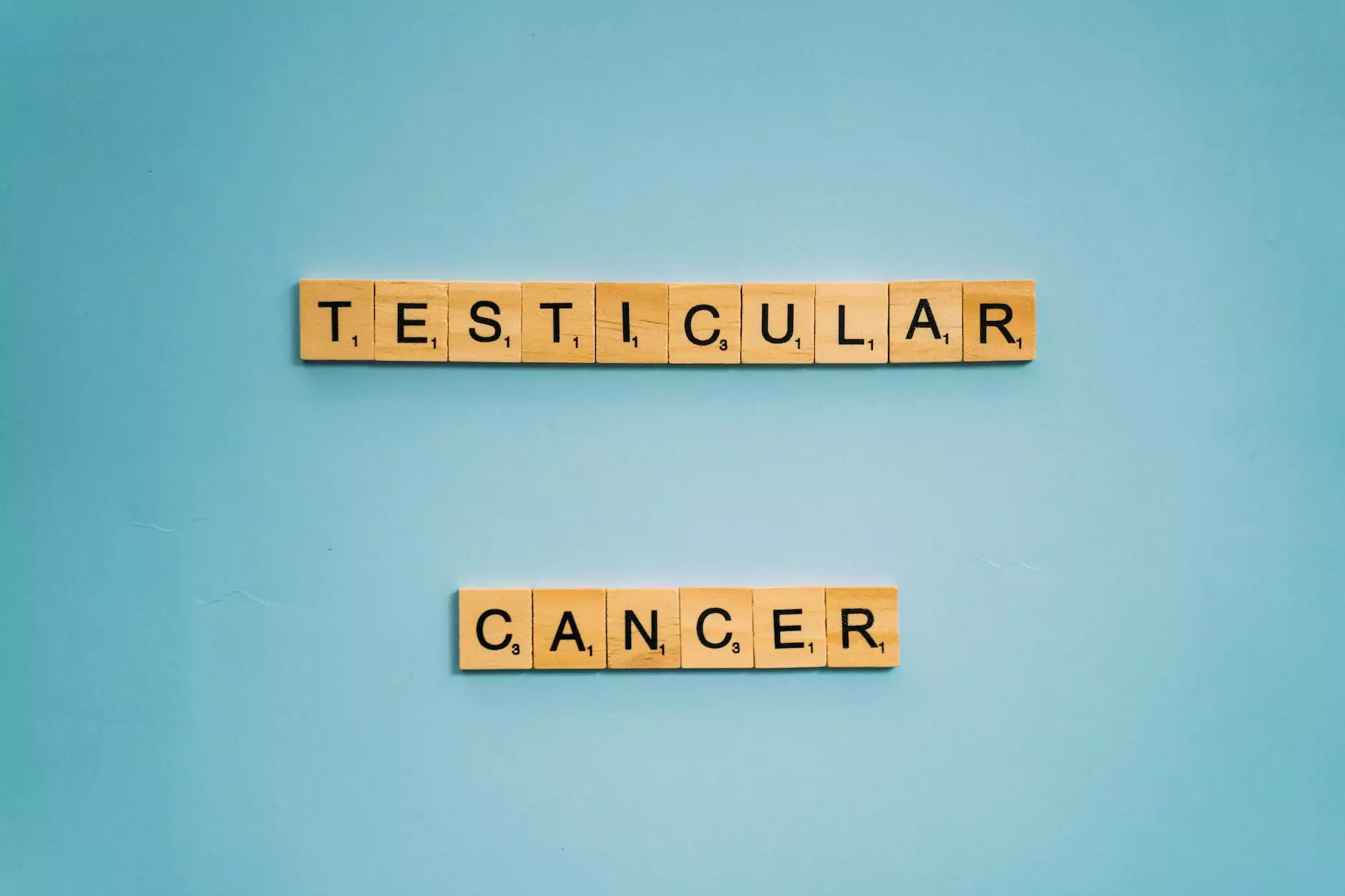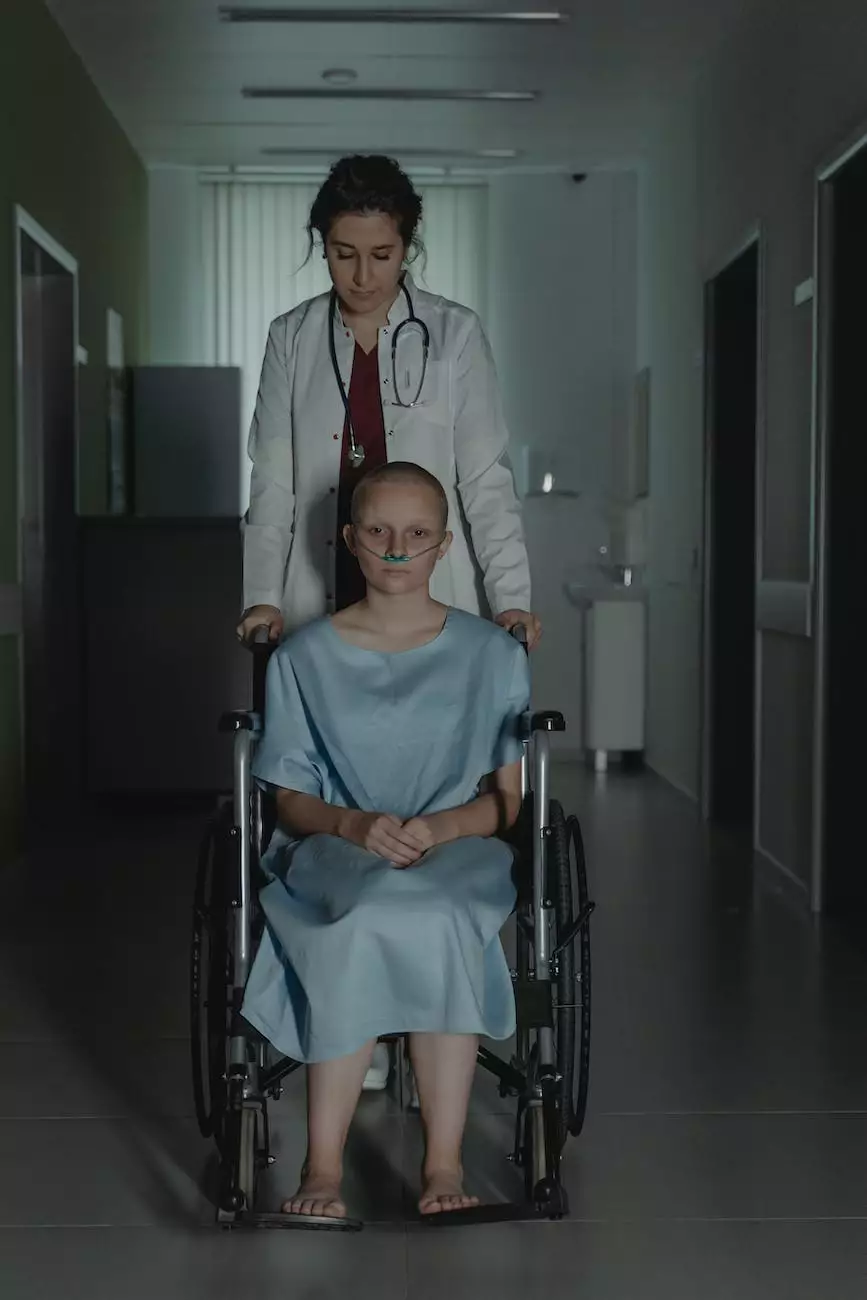Testicular Cancer Treatment in North Carolina
Health
Understanding Testicular Cancer
Testicular cancer, categorized under the health field, is a type of cancer that occurs in the testicles, which are the male reproductive organs responsible for producing sperm and testosterone. This form of cancer can affect men of any age, but it is most frequently diagnosed in males between the ages of 15 and 35.
Causes and Risk Factors
The exact causes of testicular cancer are still unknown. However, several risk factors have been identified:
- Prior history of undescended testicles (cryptorchidism)
- Family history of testicular cancer
- Abnormal testicle development (carcinoma in situ)
- Personal history of testicular cancer in the past
Additionally, individuals with Klinefelter syndrome and certain genetic conditions are also at a higher risk of developing testicular cancer.
Symptoms and Diagnosis
Early detection is crucial for successful treatment of testicular cancer. Some common symptoms to be aware of include:
- Lump or swelling in the testicles
- Pain or discomfort in the testicles or scrotum
- Enlargement or hardening of the testicle
- A dull ache or feeling of heaviness in the lower abdomen or groin area
If you experience any of these symptoms, it is important to consult a healthcare professional for a proper diagnosis. Diagnostic procedures may include:
- Physical examination
- Ultrasound imaging
- Blood tests for tumor markers
Treatment Options
Testicular cancer treatment depends on various factors, including the stage and type of cancer, as well as individual preferences. Treatment options for testicular cancer may include:
Surgery
Surgical procedures are commonly used to treat testicular cancer. The specific type of surgery performed will depend on the individual case, but may include:
- Radical inguinal orchiectomy: Removal of the affected testicle
- Retroperitoneal lymph node dissection: Removal of lymph nodes in the abdomen
Chemotherapy
Chemotherapy is often recommended for testicular cancer patients to eliminate any remaining cancer cells after surgery, and to prevent the cancer from recurring.
Radiation Therapy
Radiation therapy may be employed to destroy cancer cells. It is usually administered after surgery, particularly if the cancer has spread to the lymph nodes or other areas.
Targeted Therapy
Targeted therapy involves medications that specifically target cancer cells, blocking their growth and spread. This approach may be recommended for certain types of testicular cancer.
Support and Recovery
At Kelley Tim PA-C, we provide comprehensive support to individuals throughout their testicular cancer treatment and recovery process. Our experienced healthcare professionals offer personalized care, including:
- Emotional support and counseling
- Guidance in managing treatment side effects
- Rehabilitation and physical therapy services
- Regular follow-up appointments and screenings
Our goal is to ensure that our patients receive the highest level of care and support in their journey towards recovery.
Contact Us
If you or a loved one has been diagnosed with testicular cancer or would like more information about our services, please contact us at (your contact information). Our dedicated team is here to address any concerns or inquiries you may have.










